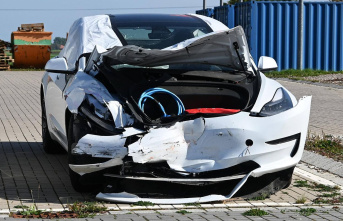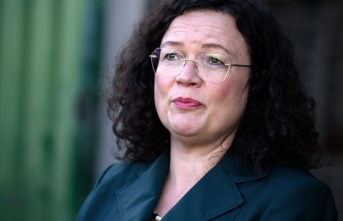Negotiations on a European gas price cap are entering the decisive phase. Today, Federal Minister of Economics Robert Habeck (Greens) and his EU colleagues want to decide on a maximum price for gas after months of dispute. The heads of state and government gave them an express mandate to do this at the EU summit last week. Crucial details such as the amount of the price limit are still open.
Print for a lid
For months, the EU countries have been arguing about measures to control gas prices, which have fluctuated sharply in the wake of the Ukraine war. Under pressure from a large number of countries, the EU Commission proposed capping the price for gas sold at the TTF wholesale site at EUR 275 per megawatt hour under certain circumstances. Such a price cap would affect large customers who trade there - not end consumers, as is the case with the federal government's gas price brake.
Concerns about security of supply
The federal government had long resisted such a mechanism and feared that security of supply would be endangered because suppliers could sell their gas on Asian markets, for example, where they could achieve higher prices.
At the EU summit it was said that the concerns of skeptical states like Germany should be taken into account. It should be ensured, for example, that tankers with liquefied natural gas (LNG) that are important for the supply do not turn off because of the price cap. In addition, despite the cap, European prices should be higher than international prices so as not to be outbid.
Height of the lid still open
Crucial details of the mechanism were still unclear until recently - such as exactly how high the price cap should be and when it will be triggered. A lower limit than that proposed by the EU Commission is now under discussion - between 180 and 220 euros per megawatt hour. Chancellor Olaf Scholz (SPD) said last week that he hoped that the price cap would never take effect. "However, the price cap (...) will be so high that I hope it will never become relevant," he said after the summit.
Market participants skeptical
The whole thing is not yet in a dry towel - also because, among other things, the operator of the affected trading place TTF is threatening to move the trading place, which is currently located in the Netherlands, to other EU countries. Should the mechanism be decided, all options would have to be examined, including the question of whether an effective market in the Netherlands would still be viable, the operator Intercontinental Exchange (ICE) said. In Germany, the Association of Municipal Enterprises (VKU) warned against excessive restrictions. "A low price limit makes gas purchases more difficult and endangers the security of supply," said VKU general manager Ingbert Liebing of the German Press Agency.
Further measures
Further measures against the high energy prices are also under discussion, such as faster approvals for certain solar or wind systems and joint gas purchases in the EU. If the ministers can agree on the gas price cap, the other projects should also be approved. A regulation on climate-damaging methane emissions is also on the agenda of the EU ministers.









